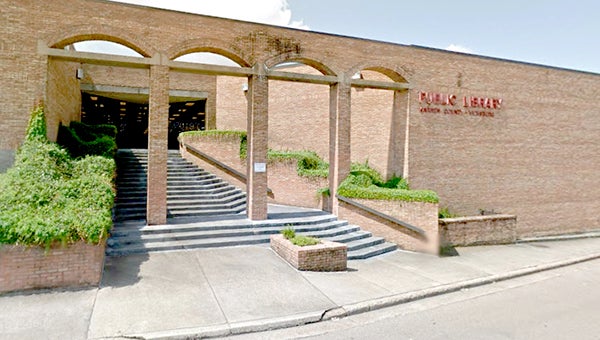ON THE SHELF: Adult Nonfiction for Black History Month
Published 8:00 am Sunday, February 19, 2023

- Pictured is the Warren County-Vicksburg Public Library. (File photo/The Vicksburg Post)
This column was submitted by Evangeline Cessna, Local History Librarian at the Warren County-Vicksburg Public Library.
This week we are featuring titles from the New Adult Nonfiction collection.
Author Pico Iyer ponders the idea of paradise in his new book “The Half-Known Life: In Search of Paradise.” Paradise is supposedly that magical place where all anxieties, struggles, and burdens fall away. Most people dream of it, but each one has very different ideas about where it is to be found. Some believe it is enjoyed after death; others believe it is our mindset — or a place just across the ocean — if we can find the eyes to see it. Iyer travels from Iran to North Korea, from the Dalai Lama’s Himalayas to the temples of Japan to bring readers different ideas of utopia and ask how we might find peace amid trials and suffering. He asks questions like, “does religion lead us back to Eden or only into more contention? Why do so many seeming paradises turn into war zones? And does paradise exist only in the afterlife, or can it be found in the here and now? For fifty years Iyer has roamed the world observing cultures with an open mind and an open heart wanting to be transformed. This book is a beautiful exploration of how we may come to paradise during our very real lives.
Ilyon Woo tells the remarkable story of Ellen and William Craft in his book, “Master Slave Husband Wife: An Epic Journey from Slavery to Freedom.” This husband and wife escaped slavery using daring, determination, and disguise. Ellen was able to pass as a wealthy, disabled white man with William posing as “his” slave. The year was 1848 and Ellen and William, posing as master and slave, made their way across more than 1,000 miles, riding out in the open on steamboats, carriages, and trains that took them from their bondage in Georgia to the free states in the North. Along their journey, they were pursued by dogged slave traders, military officers and even friends of their enslavers who might have revealed their true identities. Their story garnered them celebrity status and they spoke alongside other famous abolitionists like Frederick Douglass and William Wells Brown. They were not out of danger, however, as the government passed the Fugitive Slave Act in 1850 making all Americans accountable for returning refugees like the Crafts to slavery. The Crafts were once again forced to flee — this time from the United States.
Investigative journalist Jim Popkin tells the incredible story of Ana Montes in his book “Code Name Blue Wren.” Just days after the 9/11 attacks, a senior Pentagon analyst was on her way to work, but she did not notice the undercover cars tracking her every turn. As she settled into her cubicle at the Defense Intelligence Agency, FBI and other DIA agents were hiding in nearby offices. This was the day that Ana Montes — who had just won a prestigious fellowship at the CIA — was to be arrested and publicly exposed as an agent for the Cuban government. For nearly 17 years, Montes succeeded in two high-stress jobs. During the day, she was one of the government’s top experts on Cuba with easy access to classified documents. By night, she was working for Fidel Castro, listening to coded messages, passing US secrets to handlers in local restaurants and slipping into Havana wearing a wig. She didn’t just deceive her country, though. Her father was a former U.S. Army Colonel, and her brother and sister-in-law were FBI special agents. Her only sister, Lucy, has spent a distinguished career as a Miami-based language specialist helping the FBI flush out Cuban spies in the United States. Little did Lucy and her family know that the greatest Cuban spy of all was sitting right next to them at Thanksgivings, baptisms and weddings.
“Half American: The Epic Story of African Americans Fighting in World War II at Home and Abroad” is by Matthew F. Delmont. Over one million Black men and women served in Normandy, Iwo Jima, and the Battle of the Bulge in segregated units and performed unheralded but crucial support jobs, only to be denied housing and educational opportunities on their return home. Without the vital contributions to the war effort, the United States could not have won the war. In these pages are the stories of Black heroes like Thurgood Marshall, the chief lawyer for the NAACP, who investigated and publicized violence against Black troops and veterans; Benjamin O. Davis, Jr., leader of the Tuskegee Airmen, who was at the forefront of the fight to open the Air Force to Black pilots; Ella Baker, the civil rights leader who advocated on the homefront for Black soldiers, veterans, and their families; James Thompson, the young man whose letter to a newspaper laid bare the hypocrisy of fighting against fascism abroad when racism still reigned at home set into motion the Double Victory campaign; and the poet Langston Hughes, who worked as a war correspondent for the Black press. Their bravery and patriotism in the face of racism is both inspiring and unifying.





